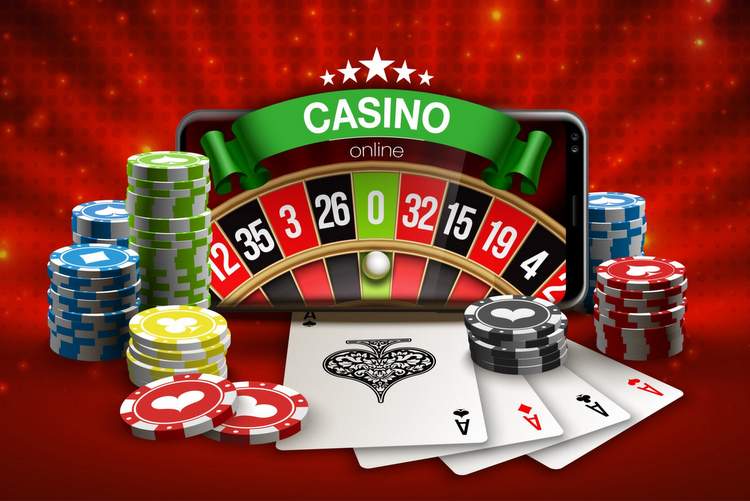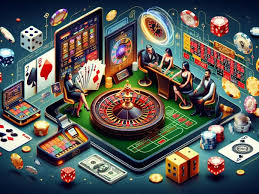
In today’s fast-paced gaming world, the concept of “Oyunçular üçün tam nəzarət və” or “complete control for players” has become increasingly vital. Gaming is no longer just a leisure activity; it’s a complex ecosystem that includes elements of entertainment, competition, and community. As players dive deeper into immersive experiences, ensuring that they have control over their gaming environments is paramount. This article will explore the different facets of player control, including responsible gaming practices, technological integration, and the significance of empowering gamers to make informed choices. For further insights on responsible gaming practices, check out Oyunçular üçün tam nəzarət və dəstək betanders.
The Importance of Player Empowerment
Player empowerment can be defined as providing gamers with the knowledge, tools, and options they need to make informed decisions regarding their gaming habits. Empowered players are more likely to engage in responsible gaming practices, which can lead to healthier gaming habits and a more enjoyable experience overall. In this section, we will discuss several aspects of player empowerment, including game design, transparency, and access to resources.
Game Design and Transparency
One of the primary ways to empower players is through transparent game design. When game developers establish clear rules, mechanics, and potential risks associated with their games, players can make better-informed choices. This transparency can take several forms, such as detailed descriptions of bonus features, game odds, and responsible gaming resources.
Moreover, game design should prioritize the player’s experience, allowing for customizable settings that cater to individual preferences. For instance, implementing features that enable players to set their playing limits or adjust their gaming environment can significantly enhance their sense of control.
Access to Resources

Providing players with resources related to responsible gaming is crucial in fostering a safe gaming environment. This includes access to educational materials that inform players about the potential risks of gaming, signs of problem gambling, and where to seek help if needed. Websites, community forums, and in-game notifications can serve as valuable tools in promoting awareness among gamers.
Technology Integration in Game Control
As technology continues to evolve, its integration into gaming can offer innovative ways to enhance player control. Various technological solutions are currently available, ranging from artificial intelligence to machine learning. These can dramatically influence how players engage with their games and manage their experiences.
Artificial Intelligence and Personalization
Artificial intelligence (AI) has the potential to revolutionize how players interact with online games. AI-driven algorithms can analyze player behavior and preferences to deliver personalized gaming experiences. For instance, AI can suggest games based on a player’s previous choices, as well as provide in-game tips tailored to their skill level.
Self-Exclusion Tools
Another crucial technological feature that contributes to player control is the availability of self-exclusion tools. These tools enable players to set limits on their gaming activities, including time spent gaming and the amount of money wagered. By giving players the ability to proactively manage their gaming behaviors, self-exclusion tools promote responsible gaming practices and help prevent the development of gambling-related issues.

The Role of Regulation and Industry Standards
Regulation plays a vital role in ensuring that the gaming industry provides a safe and responsible environment for players. This includes the establishment of industry standards that require game developers to implement features that promote player control and responsible gaming.
Compliance with Responsible Gaming Initiatives
Many jurisdictions require gaming operators to comply with responsible gaming initiatives, which include player control measures. These initiatives can involve the implementation of age verification systems, upfront disclosures about risks, and adherence to self-exclusion protocols. By ensuring that gaming operators prioritize player protection, regulatory bodies help cultivate a safer gaming landscape.
Industry Collaboration
The collaboration between various stakeholders in the gaming industry, including developers, regulators, and advocacy groups, is essential to promote responsible gaming practices and empower players. Joint efforts can lead to the development of industry-wide guidelines that encourage transparency, player empowerment, and responsible practices.
Conclusion
In summary, the concept of “Oyunçular üçün tam nəzarət və” speaks to the crucial need for players to have complete control over their gaming experiences. By prioritizing player empowerment, integrating advanced technologies, and adhering to regulatory standards, the gaming industry can create a safer and more enjoyable environment for players. It is imperative that both players and industry stakeholders work together to cultivate responsible gaming practices, leading to a healthier gaming culture for all.

